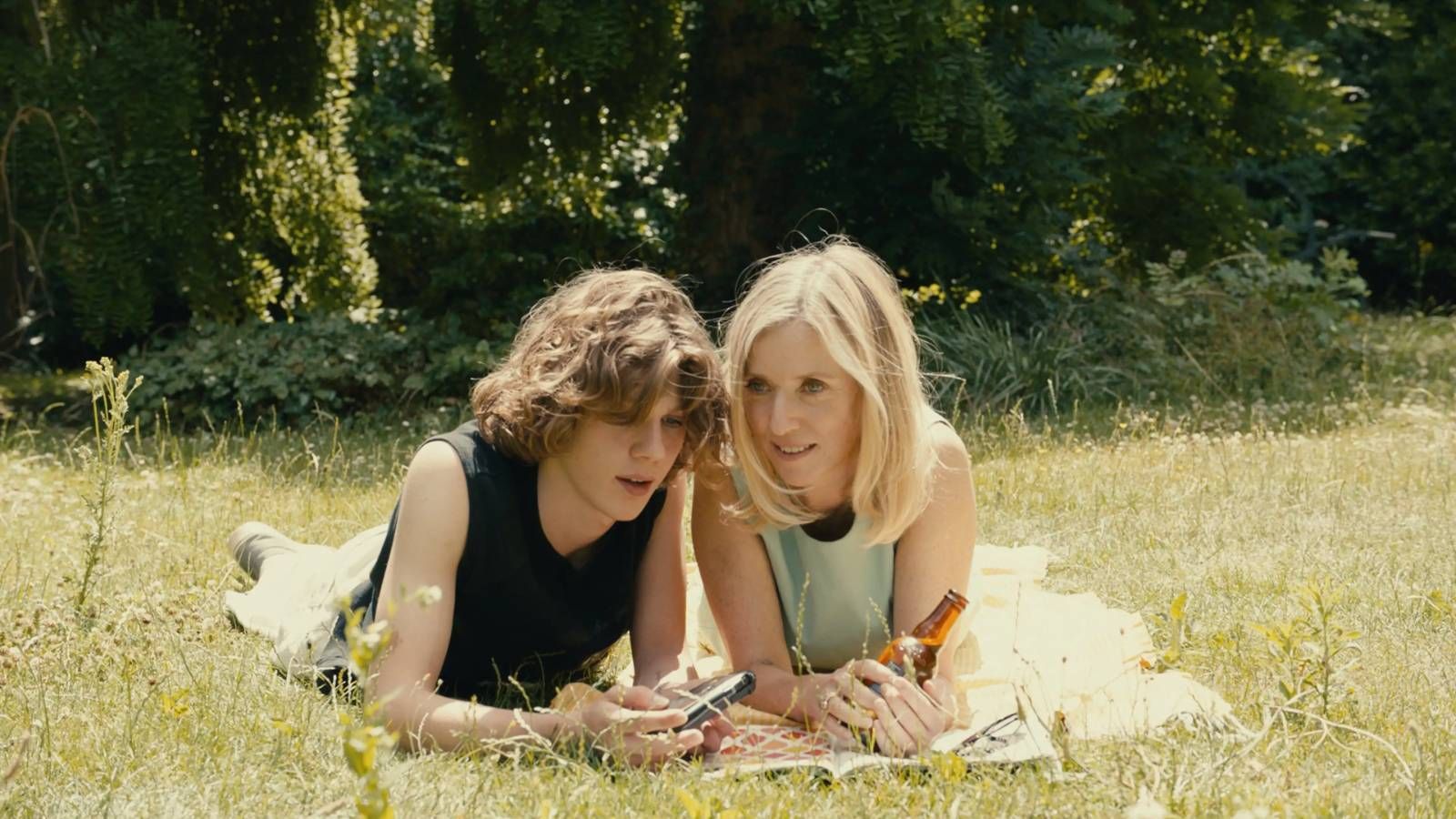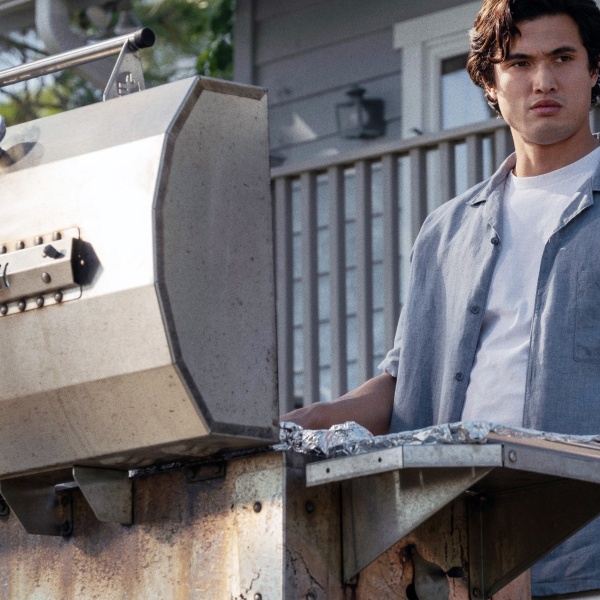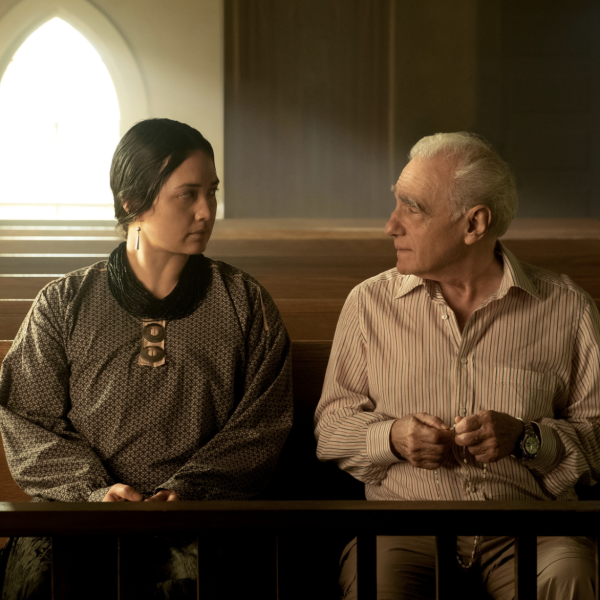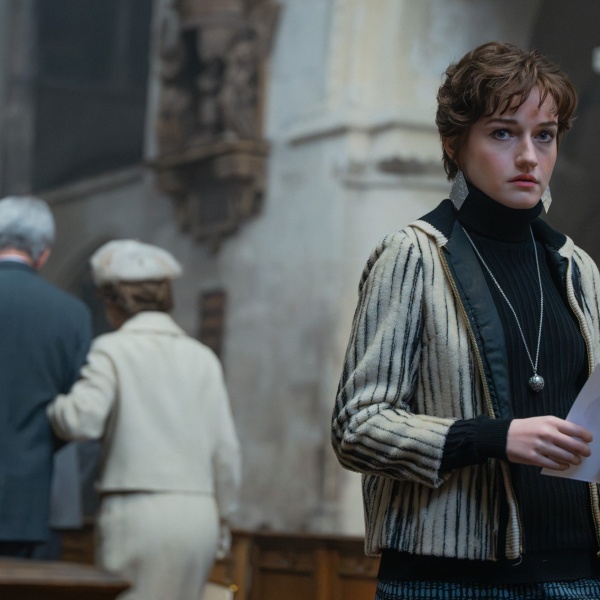
Nothing in this sick, sad world is simpler or more complicated than sex, a principle that helps to explain why the ever-provocative Catherine Breillat — whose films so often consecrate female desire by rendering it violently indefinable — was drawn to remake a 2019 Danish movie about a middle-aged lawyer who dedicates her life to defending young rape victims, only to begin a torrid affair with her own 17-year-old stepson.
May el-Toukhy’s “Queen of Hearts” spun that stark hypocrisy into a melodrama ridden with shame and secret darkness. Breillat’s “Last Summer” is much lighter in every way, and all the more revealing as a result; it leverages the same premise into a rich exploration of the inadequate judgment such a premise exists to invite.
Seductively empathetic without absolving its heroine or trolling the audience into aligning themselves with her, this adaptation bypasses any sort of moral binary in order to make the case that what happens between two people — or even between a woman and her own body — is far more complex than social ideology can ever hope to understand. Breillat sees art as the best hope we have for bridging that gap, and so “Last Summer” is less compelled by crime and punishment than it is by the soft mysteries that people struggle to solve within themselves. Rationales abound, but answers remain as elusive as the logic of a dream.
Anne (Léa Drucker) lives her life with eyes wide open, and she bluntly insists that her clients do the same. “The defense will try to portray you as a world-class slut and claim you consented,” she tells a trembling young rape victim in the film’s opening scene, warning the girl that — in court — even the most innocent victims have a tendency to become the accused. Her advice: Always tell the truth.
Anne rarely has reason to lie, even to herself. An affluent and esteemed lawyer who’s always cared for her clients and still faintly resembles a young Catherine Deneuve (even in her early fifties), she’s a model of bourgeois respectability. Anne lives in an idyllic chateau on the outskirts of Paris, where the summer light streams in through the windows like a pour of crisp Pinot, and she enjoys staid — but sweetly intimate — sex in the missionary position with her husband (Olivier Rabourdin, who embodies Pierre as a boisterous man of flesh and blood, as opposed to some kind of wet blanket who’s begging to be cucked by his own son). They share a pair of button-cute adopted daughters who are so easy to care for they barely register as anything more than background noise, and Anne’s only friend is her sister.
This isn’t a life that was built to disguise a predator; if anything, it’s a life that reflects the deliberate satisfaction of Anne’s desires. When Anne refers to herself as a gerontophile during a post-coital conversation with Pierre, claiming that she’s “turned on by bodies that have lost their youthful firmness,” there’s absolutely no sense that the lady doth protest too much. And when she bumps into her delinquent step-son Theo (Samuel Kircher) in the house one day, where he’s been sent to live after screwing things up with his mom in Switzerland, Anne doesn’t clock any potential for crossing the line. While the MILF-industrial has conditioned us to search for some kind of forbidden eros in the scene where Anne finds Theo shirtless in the hallway (his torso long but stubbornly boyish), Anne’s existence is simply too genteel for her to suspect that she’s in a Catherine Breillat movie — the vibe is a lot closer to “Summer Hours” than it is to “Anatomy of Hell.”
But when Anne decides to fudge the truth on Theo’s behalf, agreeing to cover up something he’s done so long as he promises to act like a member of the family, that little white lie starts to make her feel like a kid again. Suddenly, the neurotic fearfulness she’s always felt as an adult begins to swirl together with the reckless abandon she never got to feel as a young woman; Anne has never been afraid of falling, but she’s always been terrified of the irrepressible temptation to jump. Theo just gives her the strangest and most illogical of safety nets: How far could she possibly fall inside of her own two-story house?
Scandalous but surprisingly chaste, the affair that develops is so casual and unhurried that we start to share in Anne’s dislocation — the more that her circumstances begin to resemble the stuff of a Breillat film, the easier it is for us to forget that she’s actually in one. The flirtation between Anne and Theo is always obvious, but never porny or absent a measure of plausible deniability. She counsels teens for a living, and he needs direction in his life. She never got to be young, and he needs to grow up (Anne laments that she was conceived after the Summer of Love but raised during the “sex = death” years of the AIDS epidemic, while Breillat and Pascal Bonitzer’s script makes no explicit comment on the social dysfunction of kids today).
Kircher and Drucker are riveting together because they each allow their characters to seem believably unintentional and alien to each other. Theo is contagiously young, but he’s still a boy to the bone, closer to 12 than he is to 20. Anne is a beautiful woman, but she can’t fathom that anyone Theo’s age would deem her fuckable enough to try (she remembers having a crush on one of her mother’s friends when she was a kid, and writing in her diary about the “pre-corpse” man’s paper-like skin … only to realize that he was just 33 at the time). Theo is like a puppy dog who would chase a mail truck into highway traffic, while Anne is all but hypnotized by the sight of her step-son’s tail wagging behind him. It seduces her back to a moment in her life that she never got to enjoy in the first place — that adolescent stretch when understanding your desires seems much less important than heeding them at any cost.
In that sense, “Last Summer” has less to do with sex than time travel, but that only makes it more disturbing. Breillat frames the first time that Anne and Theo “make love” in a single, un-explicit shot, with Anne looking up at his scrawny chest and bouncing hair from a POV that makes her feel like a kid again, if only because it’s a view that only someone of a certain age should ever be in a position to see for themselves. The next sex scene acts like something of a reverse shot, and proves even more troubling for its focus on Anne’s pleasure, as she orgasms from an experience that she would otherwise prosecute to the fullest extent of the law. Breillat never misses a chance to explore the hazy space between what we accept from children and adults, from others and of ourselves, a double-standard that “Last Summer” frequently complicates with familial closeness.
There are heart-rending reasons why Anne might be unusually predisposed to the crimes she commits, but this familiar tale is only worthy of Breillat’s attention because of the conflict it breeds from its heroine’s emergent self-awareness. The more sympathetic Anne becomes, the more indefensibly she acts, until, in a breathtaking scene, she makes a decision that not even its director would ever dare to justify.
“Last Summer” may not be as graphic as Breillat’s previous work, but in the span of a single moment — one no less demure than the rest of this movie — it suddenly becomes as viscerally upsetting as anything she’s ever staged in front of a camera, Drucker’s face constricting with cruel purpose as her vertiginous character tries to stop herself from smacking into the ground at the last second. Don’t be fooled by the airiness of its wine-drunk aesthetic or the languor of its pacing: “Last Summer” is every inch a Catherine Breillat movie, and its effervescent sheen is nothing but a natural distraction from the death-like darkness that attends to the fall.
Grade: B+
Sideshow and Janus Films will release “Last Summer” in theaters on Friday, June 28.






